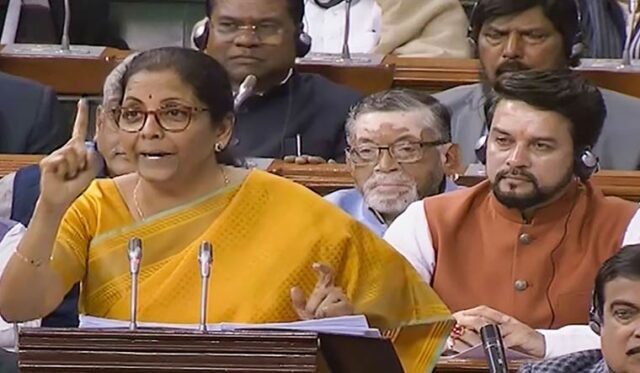Budget 2021- Impact on personal Finance

Lack of knowledge about how to manage financial assets leads people to ask, “Why is personal finance important?” Personal financial skills are very important because without them, people usually spend their entire lives savings without knowing the future need and always in debt, never able to catch up and get ahead. If you don’t plan for your income, you will end up overspending or spending on unnecessary items. With a proper financial plan, you will be able to manage your income effectively. This way, you will spend on what is necessary and save or invest the rest. Being able to manage your income will help you to know which expenses to handle first and which ones come later. Also, you can effectively know how much is necessary for tax payments, savings, or clear your monthly bills.
Union Finance Minister Nirmala Sitharaman presented Union Budget 2021-22 in on 1st Feb. While she made no changes to the income tax slabs, other announcements were done that can impact one’s personal finances.
Relaxation to NRI for Income of Retirement benefit account
In order to remove the genuine hardship faced by the NRIs in respect of their income accrued on foreign retirement benefit account due to a mismatch in taxation, Budget 2021 proposed to notify rules for aligning the taxation of income arising on foreign retirement benefit account.
Taxation of Unit Linked Insurance Plan (ULIP)
If you were investing in ULIPs for investment purpose rather than protection goals, then the Budget 2021 has ensured your earnings from ULIPs will be subject to Capital Gains Tax from April 1, in case premium exceeds INR. 250,000 annually
Relaxation to Sr. Citizen above 75
In order to ease the compliance burden on senior citizen pensioners those are of 75 years of age or above, Budget 2021 proposed to exempt them from the requirement of filing an income tax return (ITR) if the full amount of tax payable has been deducted by the paying bank. This exemption is proposed to be made available to such senior citizens who have only interest income apart from the pension income.
Interest earned on annual Provident Fund contribution over INR 2.5 lakh to be taxable
The Union Budget 2021 has some bad news for high earners. the Budget proposes to tax interest earned on provident fund contribution above INR 2.5 lakh per year
Tax incentives for Affordable Housing
“This government sees housing for all and affordable housing as priority areas. In July 2019 they provided and additional deduction of interest amounting to INR 1.5 Lakh for loan taken to buy an affordable house. Finance Minister Nirmala Sitharaman propose to extend the eligibility of this condition by one more year to 31st March 2022The additional deduction of 1.5 lakh shall therefore be available for loans taken up to 31st March 2022, for the purchase of the affordable housing
